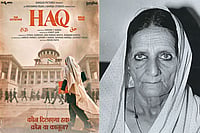Henning Mankel’s readers would probably know the little town of Ystad in Sweden better than their own backyard. The streets his detective Kurt Wallander chases criminals on, the ATM he goes to, the bars he frequents in the locality all seem like we have been there. Many crime writers, from James Ellroy (the LA Quartet) to P.D. James (many set on the Cornish coast), have made the cities of their detectives a throbbing character. British writer Michael Dibdin in his crime novels brings to life the lesser known cities of Italy, where his hero Aurelio Zen operates. American bestselling author Lawrence Block’s private eye, Matt Scudder, roams the city of New York, catching serial killers and arsonists. More recently, Jonathan Kellerman’s protagonist, psychologist Alex Delaware, cleans Los Angeles of its psychopaths. Even the tranquil, wine-sipping Provence in the south of France is the setting for the suspense books of M.L. Longworth, with suitably titled thrillers like Death in the Vines.
Bangalore comes alive in Anita Nair’s Inspector Gowda novels. She is in fine form in Chain of Custody, the second book in the series, where Borei Gowda has to bust a child-trafficking racket. The city is very much part of it—the leads take the police to Majestic bus stand, there is lament on the decay of Jayanagar and of course there is MTR: “Old Bangaloreans like him saw in MTR one of the last links to the past, while the new Bangaloreans, he thought...they came here for the food as much as to be able to mention breezily their visit to MTR”. So true of the old haunts in any city in transition.
Chain of Custody is true-blue crime thriller—the action is frenetic, the dialogues sharp, it has a whole range of well-fleshed-out characters, from the married Inspector Gowda, who is in another relationship, to a menacing, crazed kingpin of a child prostitution ring. As Gowda and his team closes in on the villains, Nair doesn’t miss a beat to point towards the many inequities, injustices and inhumanity of a system which is for and of the rich and powerful. Zac O’Yeah’s Mr Majestic series, and now the figure of Inspector Gowda should serve the city of Bangalore well.
Shashi Warrier’s The Man Who Wouldn’t Be God is not strictly detective fiction—the protagonist, Bala Kamath, is not a cop or a sleuth but an investigative journalist. Here again, the city where the action takes place, Mangalore (where the author lives), is a key character. It’s written in the first person and Kamath discloses right upfront that he’s an alcoholic. He is also grappling with a loveless marriage and is a loser at work. He is given a final assignment, to do a story on a dubious godman who has committed all the crimes godmen usually commit—amassed illegal wealth, has powerful politicians as his followers and is accused of raping a devotee. But as Kamath goes to his ashram and gets to know Swami Sarvananda, he finds it’s all far more complicated than what appeared at first.
Warrier’s writing is a bit loose, but the character of Swami Sarvananda is interesting and things happen at a quick nick. There are many parallels between real-life godmen, from the north and south of the country, who are implicated in various crimes. The rum-guzzling Kamath is more straightforward and predictable than Inspector Gowda, but he too gets sucked into the action in the ashram and finds himself fighting for his life.
Yes, the detectives have to get more hard-boiled (the hard-drinking, dysfunctional, melancholic gumshoe is quite passe now), the plots have to be sharper and the twists more heart-stopping, but the homegrown crime novel is coming of age. That more serious writers are trying out this popular genre is a good sign and who knows, we may soon be giving all those Scandinavian detectives a good chase.



























